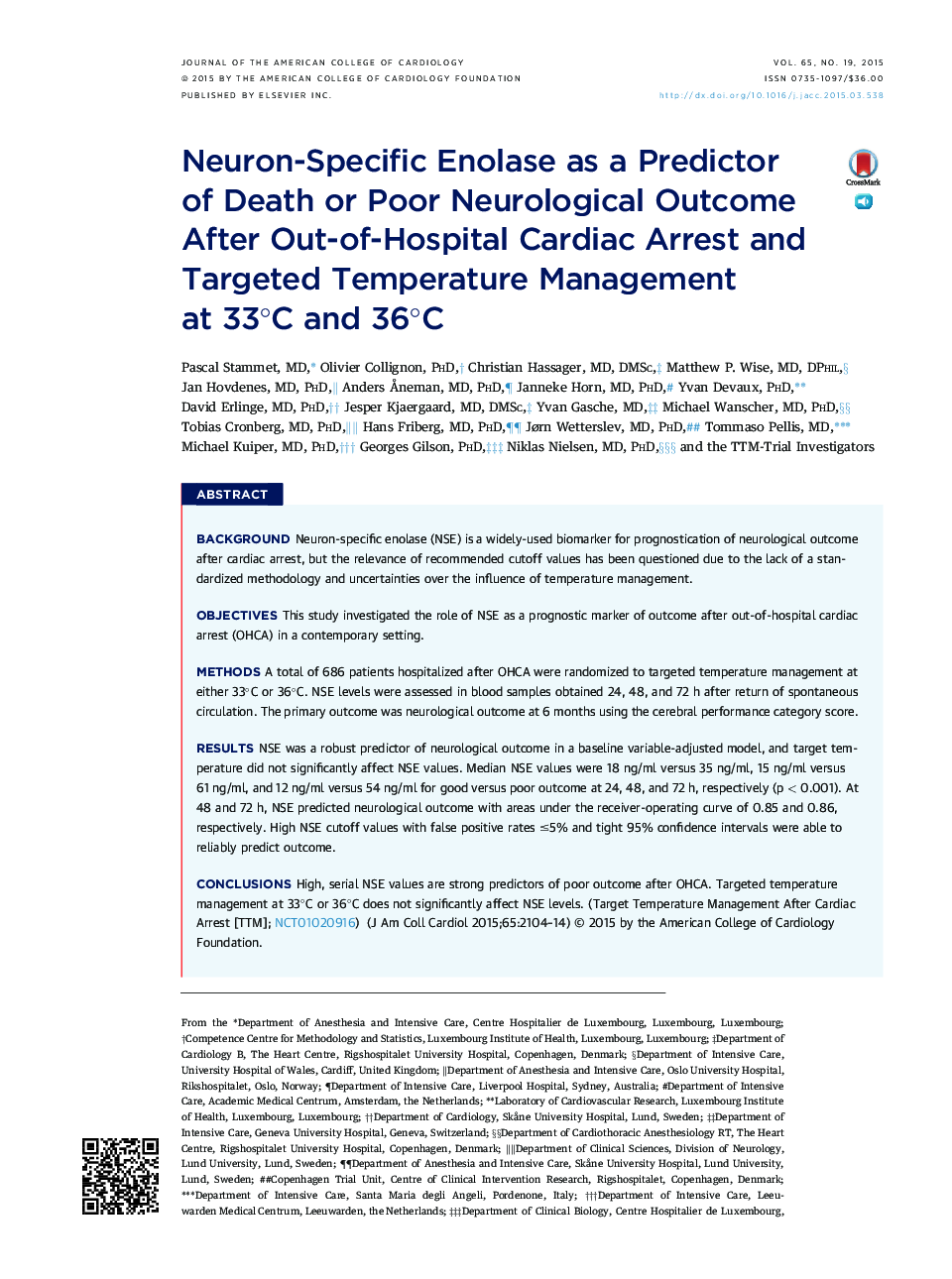| کد مقاله | کد نشریه | سال انتشار | مقاله انگلیسی | نسخه تمام متن |
|---|---|---|---|---|
| 2944207 | 1577048 | 2015 | 11 صفحه PDF | دانلود رایگان |

BackgroundNeuron-specific enolase (NSE) is a widely-used biomarker for prognostication of neurological outcome after cardiac arrest, but the relevance of recommended cutoff values has been questioned due to the lack of a standardized methodology and uncertainties over the influence of temperature management.ObjectivesThis study investigated the role of NSE as a prognostic marker of outcome after out-of-hospital cardiac arrest (OHCA) in a contemporary setting.MethodsA total of 686 patients hospitalized after OHCA were randomized to targeted temperature management at either 33°C or 36°C. NSE levels were assessed in blood samples obtained 24, 48, and 72 h after return of spontaneous circulation. The primary outcome was neurological outcome at 6 months using the cerebral performance category score.ResultsNSE was a robust predictor of neurological outcome in a baseline variable-adjusted model, and target temperature did not significantly affect NSE values. Median NSE values were 18 ng/ml versus 35 ng/ml, 15 ng/ml versus 61 ng/ml, and 12 ng/ml versus 54 ng/ml for good versus poor outcome at 24, 48, and 72 h, respectively (p < 0.001). At 48 and 72 h, NSE predicted neurological outcome with areas under the receiver-operating curve of 0.85 and 0.86, respectively. High NSE cutoff values with false positive rates ≤5% and tight 95% confidence intervals were able to reliably predict outcome.ConclusionsHigh, serial NSE values are strong predictors of poor outcome after OHCA. Targeted temperature management at 33°C or 36°C does not significantly affect NSE levels. (Target Temperature Management After Cardiac Arrest [TTM]; NCT01020916)
Journal: Journal of the American College of Cardiology - Volume 65, Issue 19, 19 May 2015, Pages 2104–2114